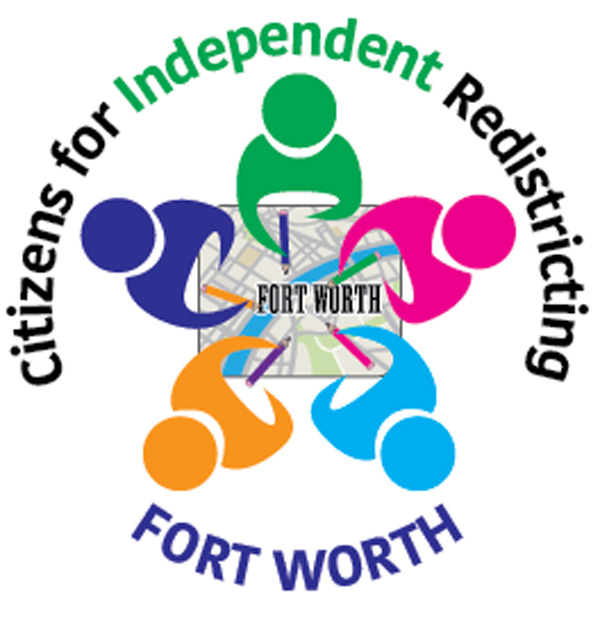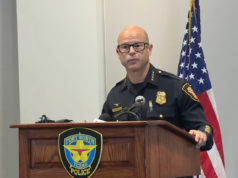At first glance, Fort Worth’s Redistricting Task Force — the 11-member group that is currently drafting redistricting recommendations for Fort Worth City Council — appears to be on the right track. A recent interim report shows that task force members are prioritizing the fair and even distribution of minorities when deciding how to divide Fort Worth into 10 districts (“Dividing Fort Worth,” Dec 2020).
After the task force makes its final recommendations in March, Fort Worth’s current eight districts will be redrawn to allow for two new districts and the election of two new councilmembers in 2023. Locals approved the expansion when they voted for an amendment to the city charter in 2016, and data from the 2020 Census will play a key role in shaping Fort Worth’s new district map.
The use of a city-appointed task force was not the system that city leaders committed to in late 2018, though. Two years ago, the mayor and city council agreed to appoint a charter review task force to determine the steps needed to enable a citizen-led redistricting effort.
Those and other reforms were intended to address public uproar following the heavy-handed arrest of Jacqueline Craig, a Black mother, and her two teenage daughters at the hands of a white Fort Worth police officer in 2016. Fort Worth City Council formed the Race and Culture Task Force to examine social and economic disparities in Fort Worth. Civic leaders and many locals at the time demanded meaningful reforms to prevent further mistreatment of Black, brown, and poor residents at the hands of law enforcement. City leaders saw the Race and Culture Task Force as the best means for delivering those reforms.
One of the Race and Culture Task Force’s 22 final recommendations accepted by city council in late 2018 was the formation of an independent redistricting commission (IRC). Proponents of IRCs note that the independent groups, which are composed of volunteer residents who meet certain criteria, remove potential conflicts of interest that can arise when councilmembers are allowed to redraw district maps for self-serving purposes.
“Part of the reason for an ‘independent’ commission was to avoid the normal process of incumbents protecting their own seats on the council,” said Bob Ray Sanders, retired columnist for the Star-Telegram and co-chair of the Race and Culture Task Force.
Sanders isn’t the only one voicing concerns over the city’s redistricting plans. Members of the civic-minded group Citizens for Independent Redistricting Fort Worth are raising public awareness of what they say is the city’s backpedaling on its 2018 commitment to pursue an IRC.
“The Race and Culture Task Force proposed” the IRC, said Bruce Miller, an active volunteer with Citizens for Independent Redistricting Fort Worth. The city has “subsequently pushed back against the idea.”
Assistant City Manager Fernando Costa said the Race and Culture Task Force did not recommend an IRC.
The Race and Culture Task Force’s recommendation, he said, was for “the appointment of a charter review task force that would study the desirability of amending the city charter for the purpose of creating an independent redistricting commission. The city council subsequently declined to appoint a charter review task force.”
Sanders said his understanding of the task force recommendation, which he co-authored, was clear.
“The task force did recommend an independent redistricting commission,” he said, adding that he agrees with Costa that there was supposed to be an intermediate review process to look into how an IRC could be formed.
“After almost 18 months of study, the task force didn’t feel it had all the information needed to make definite, detailed recommendations on some issues, particularly those I understood some councilmembers considered would be ‘dead on arrival,’ ” Sanders said. “Of course, my response to the ‘dead on arrival’ statements was that if the recommendations would be dead, it would be because [city councilmembers] killed it, not because we aborted it.”
Sanders said that when he heard about the current redistricting task force, he was initially under the impression that the appointed group was honoring the Race and Culture Task Force’s support for an IRC.
“It appears the charge to the redistricting task force, however, was to begin with the premise that the city council would still draw the redistricting lines,” Sanders said. “To say the least, that’s not how I envisioned it.
Costa defended the city’s current roadmap for drafting 10 city council districts.
The city’s approach “is the approach that Fort Worth and most cities across the country have always used to redraw district boundaries,” he said. “Proponents of this approach often say that it promotes accountability and democracy because citizens elect their councilmembers to make these kinds of decisions and can hold their elected officials accountable for making such decisions responsibly.”
Inquiries about upcoming Redistricting Task Force meetings can be made by emailing FWConnection@fortworthtexas.gov. To learn more about Citizens for Independent Redistricting Fort Worth, visit CitizensMapFW.org.
This article has been updated to note that city council “accepted” the Race and Culture Task Force recommendations.











